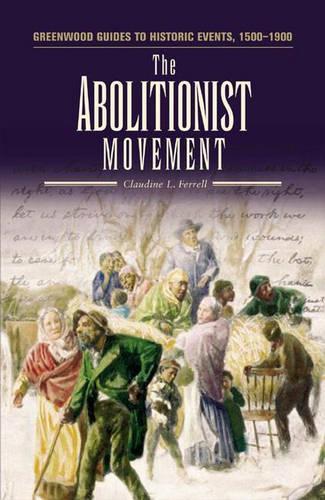
The Abolitionist Movement
(Hardback)
Publishing Details
The Abolitionist Movement
By (Author) Claudine L. Ferrell
Bloomsbury Publishing PLC
Greenwood Press
30th December 2005
United States
Classifications
General
Non Fiction
Slavery, enslaved persons and abolition of slavery
973.7114
Physical Properties
Hardback
248
Width 156mm, Height 235mm
510g
Description
The abolitionists of the 1830s-1850s risked physical harm and social alienation as a result of their refusal to ignore what they considered a national sin, contrary to the ideals upon which America was founded. Derived from the moral accountability called for by the Great Awakening and the Quaker religion, the abolitionist movement demanded not just the gradual dismantling of the system or a mandated political end to slavery, but an end to prejudice in the hearts of the American people. Primary documents, illustrations and biographical sketches of notable figures illuminate the conflicted struggle to end slavery in America. Some called them fanatics; others called them liberators and saints. Immeasurable though their ultimate impact may have been, the abolitionists of the 1830s-1850s risked physical harm and social alienation as a result of their refusal to ignore what they considered a national sin, contrary to the ideals upon which America was founded. Derived from the moral accountability called for by the Great Awakening and the Quaker religion, the abolitionist movement demanded not just the gradual dismantling of the system or a mandated political end to slavery, but an end to prejudice in the hearts of the American people. Claudine Farrell's concluding essay draws parallels between the abolitionists' struggles and the Civil Rights movement of the 1950s-1970s, demonstrating the significant amount of ground being gained in a still-unfinished war. Five narrative chapters explore the abolitionist movement's religious beginnings, the conflict between moral justice and union preservation, and the revolts, divisions and conflicts leading up to the Civil War. Biographical portraits of such notable figures as Frederick Douglass, William Lloyd Garrison, and the Grimke sisters supplement the discussion, and selections from some of the most influential documents in American historyincluding the Emancipation Proclamation, the US Constitution, and The Writings of Thomas Jeffersonprovide actual historical evidence of the events. Twelve illustrations, a chronology, index and extensive annotated bibliography make this an ideal starting point for students looking to understand the battle for and against slavery in America.
Reviews
For high school students and college undergraduates, Ferrell traces the abolitionist movement from the early anti-slavery endeavors of the Quakers through the Civil War. She analyzes abolitionism during colonization and in the 1830s to 1860s, and discusses the efforts of churches, women, and blacks. Like the other volumes in the series, the book contains biographies of key figures such as Frederick Douglass and the Grimk'e sisters, primary source documents (such as articles of the Constitution, the Fugitive Slave Act, and the Emancipation Proclamation), and an annotated bibliography. * Reference & Research Book News *
Author Bio
CLAUDINE L. FERRELL is Associate Professor, History and American Studies, at Mary Washington College, and is the author of Reconstruction (Greenwood, 2003).
